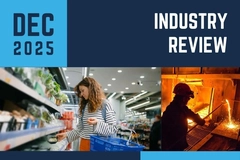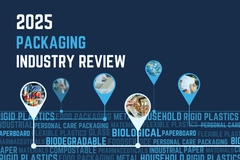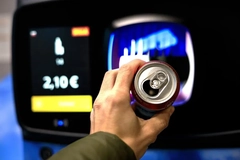International Aluminium Institute identifies methods to cut beverage can CO2 emissions by 60M metric tons

20 Sep 2023 --- A study commissioned by the International Aluminium Institute (IAI) reveals that by implementing improved beverage can recycling practices in six countries, global CO2 emissions could be reduced by up to 60 million metric tons by 2030.
Conducted by global management consultants Roland Berger and co-funded by Emirates Global Aluminium, Crown Holdings, Australian Aluminium Council and Novelis, the study identifies 20 short- and long-term strategic levers in Australia, Cambodia, South Korea, Thailand, UAE and Vietnam for enhancing recycling systems and elevating beverage can recycling rates.
According to the study, these efforts are crucial to accommodate the anticipated 50% increase in global beverage can consumption between 2020 and 2030, which would result in approximately three million metric tons of used beverage cans (UBCs) annually.
Marlen Bertram, director of Scenarios and Forecasts at IAI, stresses the critical role of recycling in reducing carbon emissions, stating, “The carbon reduction potential of recycling cannot be underestimated.”
“Recycling has a huge role to play in the overall decarbonization of the aluminum industry because recycling currently emits 0.6 metric tons of CO2e per metric ton compared to 16.6 metric tons of CO2e per metric ton for primary aluminum.”
 Recycling currently emits 0.6 metric tons of CO2e per metric ton compared to 16.6 metric tons of CO2e per metric ton for primary aluminum.Propelling aluminum recycling
Recycling currently emits 0.6 metric tons of CO2e per metric ton compared to 16.6 metric tons of CO2e per metric ton for primary aluminum.Propelling aluminum recycling
The report underscores the need for improved awareness, infrastructure investment and waste stream management to boost recycling rates. The study identifies missed opportunities in current recycling systems, such as bridging the gap between UBC collection and can-to-can recycling and understanding why some cans end up in landfills despite successful recycling systems in certain regions.
Challenges also include the lack of initial recycling access points and infrastructure for waste trading and traceability. According to the report, robust global recycling systems are essential to ensure the additional volume of aluminum maintains a circular life cycle rather than ending up in landfills.
For each of the six countries, various aspects were analyzed, including waste management and regulatory schemes, collection infrastructure, recycling and landfill rates, volumes on the market, usage trends, overall performance, used beverage can trade, material flows and future recycling targets.
The report offers detailed insights into these areas of improvement and proposes strategies for progress in each country. Crown and IAI will collaborate with local partners in the UAE and Asia Pacific to raise awareness and stimulate investment on regional levels. This collective effort aims to support global recycling rate targets, address evolving regulatory standards, meet consumer and beverage brand demands and transition the industry toward a circular model.
Implementing legislative policies establishing guidelines and parameters for each region, ensuring these environmental sustainability efforts are supported at the highest levels will be key to recycling progress.
Aluminum circularity
Global recycling systems aim to keep valuable materials within a closed loop, preserve natural resources and reduce energy consumption and emissions associated with primary aluminum production. Beverage cans are widely regarded as infinitely recyclable, with high recycled content and rapid recycling turnaround time.
“The superior recyclability of aluminum beverage cans continues to inspire us to raise awareness and build infrastructure for a stronger recovery rate across the globe,” says Sandrine Duquerroy-Delesalle, director of Sustainability and External Affairs at Crown.  Novelis discussed the company’s commitment to de-carbonization.
Novelis discussed the company’s commitment to de-carbonization.
“Through conducting this new study with the IAI and Roland Berger, we have identified effective levers in four key markets for Crown that all actors within the aluminum supply chain can and should take responsibility for action. To utilize these avenues and advance progress, we are hopeful the governments in [Vietnam, Thailand, Cambodia and the UAE] will recognize the critical role they play in establishing proper policy frameworks.”
She emphasizes that it is imperative to have legislative support to reduce carbon footprint through higher usage of recycled aluminum, both in the immediate and long term.
Additionally, Christopher Cerone, vice president of Government Affairs & Communications at Novelis and IAI secretary general, presented the results of the aluminum recycling research at the 2023 World Knowledge Forum in Seoul, South Korea, on September 14.
Cerone discussed the company’s commitment to de-carbonization and environmental sustainability and the partnerships it is developing to increase aluminum scrap recycling.
“Market demand for low carbon aluminum continues to grow significantly in line with the ESG and net zero commitments of governments and companies around the world,” he says.
“Recycling aluminum promotes de-carbonization since it requires only 5% of the energy compared to making primary aluminum while emitting 95% less carbon. This is why it is important to establish a circular economy for aluminum, a material critical to a greener economy.”
Edited by Radhika Sikaria










